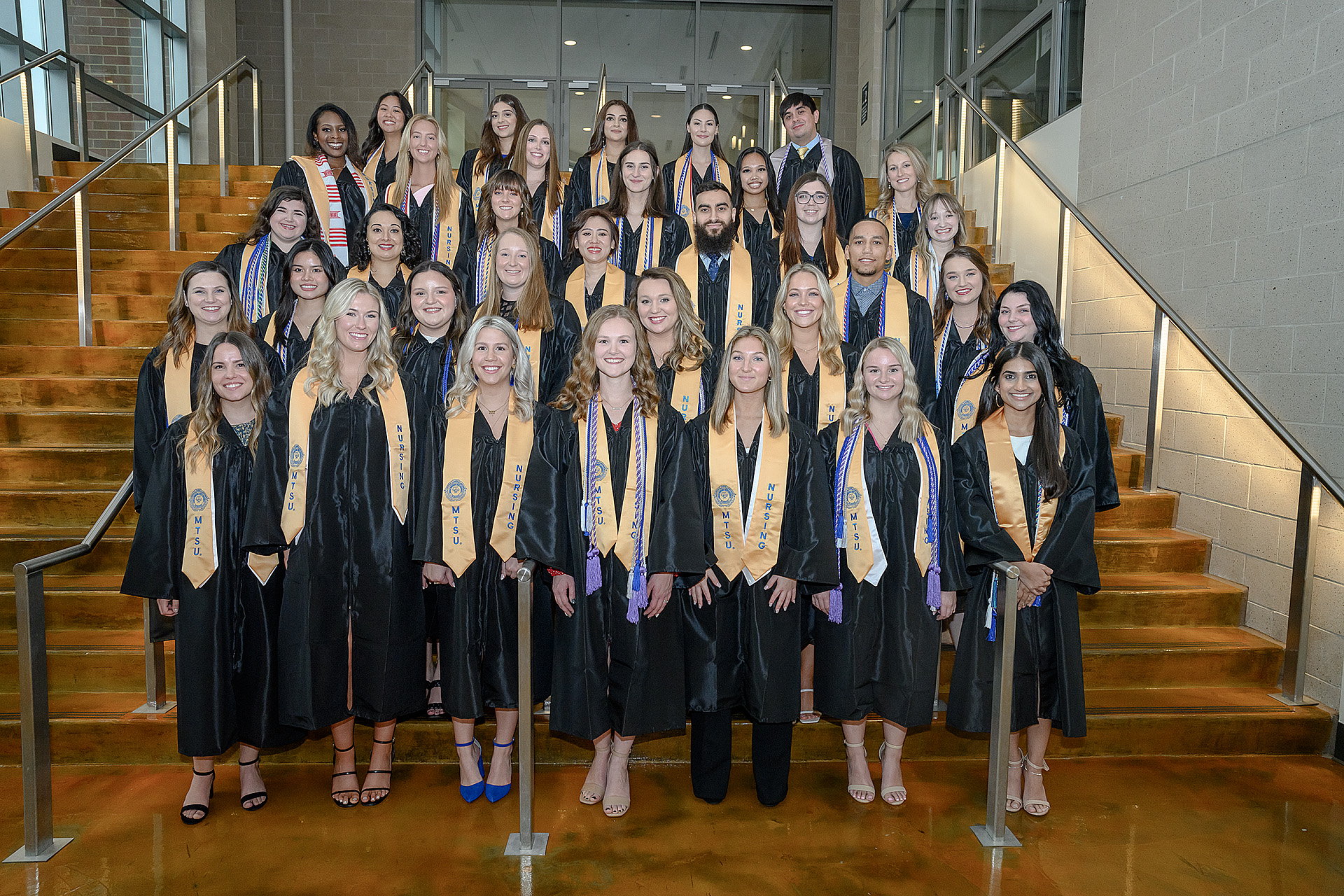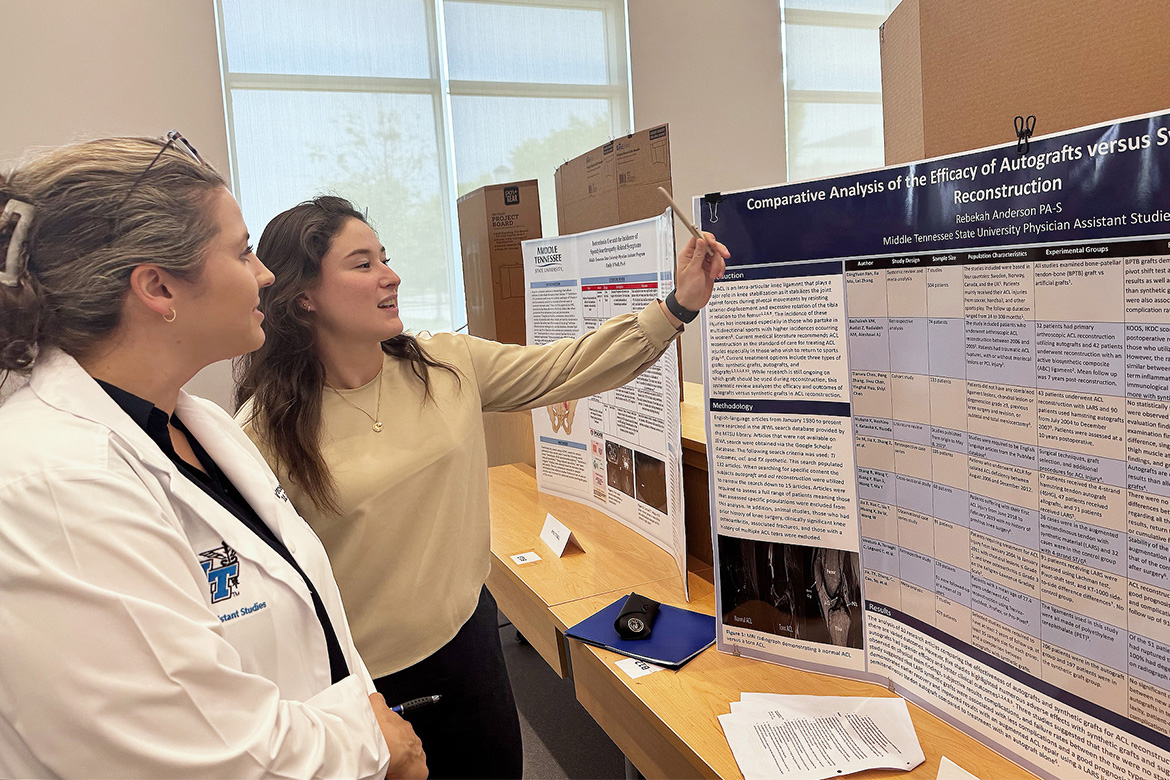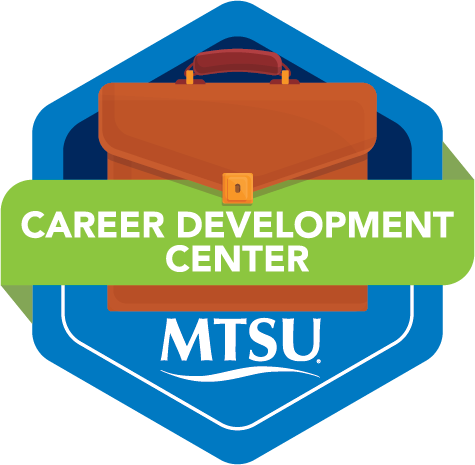
Nursing
Nursing graduates are in high demand and have extreme flexibility with numerous opportunities to make a difference in peoples lives.
Nursing, B.S.N.
MTSU's School of Nursing offers The Bachelor of Science in Nursing. The Nursing B.S.N. program consists of four academic years. Upon successful completion, graduates earn their degree and become eligible to sit for the National Council Licensure Examination (NCLEX) for Registered Nurses.
Nurses are the most trusted health care professionals today. Nurses work in various roles in the healthcare facility and in the community. Students who care about people, technology, science, and the community can join the MTSU School of Nursing's competitive and robust undergraduate program to develop their commitment to the art and science of nursing. Nursing students sometimes find the leap from classroom learning to clinical practice daunting. However, nursing students at MTSU spend approximately 200 hours in clinical simulation labs with specialty practice manikins. This allows them to gain experience and confidence in a safe environment. Students also log more than 500 hours in various practice areas providing care at community partners in Middle Tennessee. All applicants are admitted based on academic candidacy route of admissions and rank-ordered based on composite score.
News Briefs

MTSU welcomes thousands of students home to campus for start of fall 2025 semester
Thousands of new and returning Middle Tennessee State University students have begun the process of moving in to on- and off-campus housing for the start of the 2025-26 academic year.[ Read More ]

MTSU Physician Assistant Studies program welcomes public to symposium showcasing student work
MURFREESBORO, Tenn. — Get a front-row seat to tomorrow’s healthcare leaders when Middle Tennessee State University’s Physician Assistant Studies program presents its annual academic symposium from noon to 5 p.m. Friday, Aug. 1, in the Academic Classroom Building atrium.[ Read More ]
News Briefs

MTSU welcomes thousands of students home to campus for start of fall 2025 semester
Thousands of new and returning Middle Tennessee State University students have begun the process of moving in to on- and off-campus housing for the start of the 2025-26 academic year.[ Read More ]

MTSU Physician Assistant Studies program welcomes public to symposium showcasing student work
MURFREESBORO, Tenn. — Get a front-row seat to tomorrow’s healthcare leaders when Middle Tennessee State University’s Physician Assistant Studies program presents its annual academic symposium from noon to 5 p.m. Friday, Aug. 1, in the Academic Classroom Building atrium.[ Read More ]
Related Media

Nursing, B.S.N.
Employer List
The degrees in nursing offered by MTSU lead to career opportunities in direct patient care as well as health care-related industries, such as research, compliance, education, and sales. Some examples include
- Cardiac care nurse
- Clinical researcher
- Compliance education
- Critical care transport nurse
- Emergency room nurse
- Family nurse practitioner
- Home health care professional
- Health, wellness, and fitness education
- Nursing education
- On-site nurse programs
- Patient case manager
- School nurse

MTSU’s Career Development Center
MTSU offers a comprehensive Career Development Center that serves students throughout the full student experience and beyond. They collaborate with faculty and staff to equip students with the tools to be marketable to the world of work and continuing education.
Students can schedule an appointment or check online resources and job boards at mtsu.edu/career.
Students can find current internship opportunities by talking to faculty and visiting the University job and internship board called Handshake.
Wondering what you can do with your major? Check out our What Can I Do with A Major In guides.



Professional Licensure Disclosure
The Bachelor of Science in Nursing (BSN) in the College of Behavioral and Health Sciences is accredited by the Commission on Collegiate Nursing Education (CCNE). Admission to the BSN does not guarantee that students will pass the National Council Licensure Examination (NCLEX) or obtain a nursing license. Successful completion of the 120-semester hour BSN meets the educational requirements and qualifies students to sit for the NCLEX Exam and apply for licensure in Tennessee.
The BSN disclosure provided on MTSU’s professional licensure disclosure website indicates the states and territories where MTSU has determined, through reasonable and good faith effort, that the program does or does not meet the educational requirements for other US states and territories. Current and prospective students not located in Tennessee or who plan to seek licensure or certification outside the state of Tennessee should contact the appropriate state licensing agency or board and discuss their plans with an advisor before enrolling in the program to ensure they have the most up-to-date information and guidance regarding licensure requirements.
Nursing Accreditation
The baccalaureate degree program in nursing at Middle Tennessee State University is accredited by the Commission on Collegiate Nursing Education (http://www.ccneaccreditation.org).
Mission
The mission of Middle Tennessee State University School of Nursing is to provide excellencein nursing education by preparing individuals to meet the dynamic and complex healthcareneeds of society. Through robust academic programs, the School of Nursing demonstratesits commitment to the art and science of nursing.
Philosophy
The Middle Tennessee State University School of Nursing has established an operatingframework with five core competencies at the foundation. These are communication, critical thinking, personal and professional relationships, leadership and the nursing process. From this base, additional concepts emerge to provide interaction with persons, the environment, health, professional nursing and nurse education.
- Communication includes all interaction, verbal and nonverbal, that occurs with an individual orthe environment. Because communication is a complex process, education and experiencecontribute to expanding an individual's ability in this competence. Good communicationinvolves receiving as well as sending messages. It is essential in order for any ofthe other competencies to be useful.
- Critical thinking encompasses all forms of analysis, creativity and reasoning. It is essential forgood decision-making. Although it involves some basic intuitive ability, criticalthinking skills can be taught. Since critical thinking can be taught, opportunitiesfor practice and improvement are available in a variety of settings. This skill isa cornerstone without which the other core competencies would remain at a dangerouslysuperficial level.
- Personal and professional relationships are important factors in the operating framework because they are the context in whichthe other competencies interact. Through the process of socialization, students learnthe professional role in formal and informal ways. Experiences can increase abilitiesto interact with a large variety of individuals, thus enhancing relationship skills.Competency in interpersonal relationships is crucial for successful goal attainment.
- Leadership is a dynamic process that includes technical skills in combination with the art ofnursing. Effective leaders demonstrate all other core competencies as they guide othersin the professional role. Adaptation to future trends in the healthcare system ispossible through skills in management that allow for control of both material andhuman resources. The baccalaureate graduate is prepared to assume positions that requirethis important core competency.
- The Nursing process is the vehicle that connects and applies all other competencies. It is the profession'smethod of problem solving and allows for consistent, creative and skillful care. Throughthe nursing process, a team of concerned professionals meets individuals' needs forhealth and well-being.
All five of the core competencies must be present in order for an individual to demonstrate competency in the art and science of nursing. Anyone missing a portion of this core could not be a successful nursing professional. Together, the five core competencies prepare individuals with the resources to operate in the healthcare arena knowing that they possess appropriate skill to handle challenging situations. The combination of communication, critical thinking, personal and professional relationships, leadership, and the nursing process provide a broad base that stimulates ongoing knowledge and skill acquisition.
The additional concepts encircle the core competencies and add further definition and depth to the practice of nursing. Person, environment, health, professional nursing and nursing education contribute dimensions to the core competencies that clarify expectations of the practicing nurse. All terms represent factors that the nurse encounters while delivering care.
- Every person is a unique and multifaceted individual. Persons live, work and play as individuals, families, groups and communities. They are bio-psycho-social and spiritual beings who represent the entire spectrum of cultural diversity. Nurses can administer care for persons singly or in any configuration. Communication occurs with any of these combinations, highlighting interpersonal relationships. Critical thinking is required in order to plan care using the nursing process.
- The person interacts with the environment in an ongoing, continually changing cycle. In order to fully understand persons, their environment must be examined. Again, use of the core competencies facilitates nurses' ability to incorporate all environmental influence.
- Health is a continuum of wellness to illness. It is not merely the presence or absence of disease, but includes all forms of life influencing factors. Persons, in connection with their environment, strive for a place on the continuum of health that is realistic and comfortable for them. Nurses act to assist each individual in this effort. Use of all five core competencies is crucial in gaining the skill to allow optimal service to all individuals, families and communities.
- Professional nursing is an art and a science. Courses are taken in a wide variety of disciplines to supplement the knowledge gained from nursing courses. Not only do students acquire a broad knowledge base, but also they learn to interact with a diverse group of team members.
- Nursing education takes place in environments of higher learning. It includes a variety of experiences to assist students in gaining beginning competence in providing holistic care. Nursing education includes courses from many disciplines. Courses in humanities, arts, sciences and mathematics are eventually combined with nursing content to produce a well-rounded individual capable of using communication and critical thinking in developing the nursing process and accomplishing productive personal and professional relationships.
Major Concepts/Core Competencies
The core competencies were derived from concept identification and clarification exercise with faculty in April 2001. It yielded five core competencies with sub-categories identifying behaviors or characteristics for each sub-category. These are competencies the graduate should demonstrate to fulfill the program outcomes.
- Communication
- Oral Skills
- Teaching
- Professional Interaction
- Therapeutic Communication
- Assertiveness
- Public Speaking
- Negotiation
- Written Skills
- Manuscript
- Technical Reports
- Composition
- Professional Correspondence
- Documentation
- Plans of Care
- Information Technology Skills
- Word Processing
- Web Searching
- Terminology
- Electronic Communication
- Navigation of the Web
- Database Management
- Oral Skills
- Critical Thinking
- Scientific Inquiry
- Research Dissemination
- Research Utilization
- Quality Improvement
- Critical Elements Identification
- Reflective Thinking
- Creativity
- Autonomy
- Self-expression
- Risk Taking
- Flexibility
- Scientific Inquiry
- Leadership
- Personal
- Role Modeling
- Professional Accountability/Responsibility
- Lifelong Learning
- Coordinator of Care
- Team Member
- Clients/Patients
- Delegation
- Materials Management
- Accountability
- Appropriation
- Information Manager
- Human Resources
- Groups/Aggregates
- Workforce Manager
- Time Management
- Organization
- Personal
- Nursing Process
- Assessment
- Analysis
- Planning
- Implementation
- Evaluation
- Personal and Professional Relationships
- Morality
-
- Socialization
- Spirituality
- Altruism
- Social Justice
- Values
- Quality of Life
-
- Ethics
-
- Integrity
- Human Dignity
- Code of Nurses
-
- Legality
-
- Nurse Practice Act
- Patient Rights
- Civil and /or Criminal Law
- Standards of Practice
-
- Cultural Care Competency
- Sensitivity
- Diversity
- Caring
- Empathy
- Empowerment
- Collegiality
- Compassion
- Respect
- Morality
Definitions
- Accountability- Maintains inventory control systems
- Analysis- Examine and interpret data to make nursing judgements
- Appropriation- Judicious use of supplies
- Assessment- A deliberate and systematic collection of data
- Caring- Behavior that shows understanding and respect for another's perceptions, feelings, needsand desires
- Clients/Patients- Responsible for direct and indirect care of clients with multiple healthcare deficits
- Communication Skills- Exchange of ideas via a variety of formats
- Creativity- The procurement, reordering or identification of data to facilitate change
- Critical Thinking Skills- Utilizing skills of reasoning, analysis, research, or decision making relevant to the discipline of nursing
- Cultural Competency- Awareness of a response to differences among people
- Delegation- Directly and indirectly supervises others
- Ethics- The study of suitable actions based on values and morals of society
- Evaluation- Continuous process essential to ensuring the quality and appropriateness of nursing interventions
- Groups/Aggregates- Staffing, budgeting and FTE management
- Implementation- Putting a nursing plan into action
- Information Manager- Input/output data systems
- Leadership- Use of knowledge and skills to design coordinate and manage care of individuals within a system
- Legality- Standards of behavior defined by law
- Lifelong Learning- Recognizes the need to expand knowledge base throughout one's career
- Morality- Establishment and maintenance of standards of thinking and behaving
- Nursing Process- An orderly, logical, problem-solving approach to administer nursing care so that client's needs are met
- Oral Skills- Verbal and nonverbal communication
- Organization- Use problem solving to achieve multiple tasks
- Personal and Professional Relationships- Standards of behavior in the practice of nursing
- Planning- Develop a strategy that prescribes interventions to attain expected outcomes
- Professional Accountability/Responsibility- Ultimately answers for health care outcomes
- Role Modeling- Students will model professionalism
- Scientific Inquiry- Attainment, synthesis, and utilization of data
- Team Member- Practices with other healthcare professionals, including lesser skilled personnel, i.e. unlicensed assistive personnel (UAP)
- Technology Skills- Utilization of technology to promote validation and exchange of information
- Writing Skills- Ability to communicate information in written format
- Workforce Manager- Line supervisor, i.e. charge nurse
Program Outcomes
Graduates of the baccalaureate program receive preparation designed to enable them to:
- Develop professional knowledge and skills necessary to design coordinate, and leadwithin the healthcare system
- Utilize the nursing process as a foundation for nursing practice
- Communicate in a variety of media to facilitate the exchange of ideas, knowledge, and information
- Employ critical thinking abilities for personal and professional development and nursing practice refinement
- Exhibit personal and professional development responsive to changes in nursing, healthcare, and society

CONTACT US





















